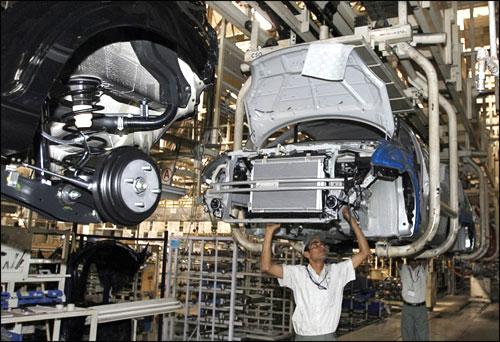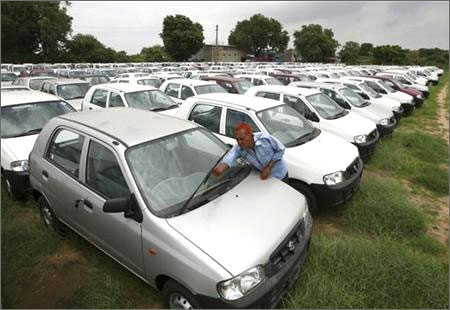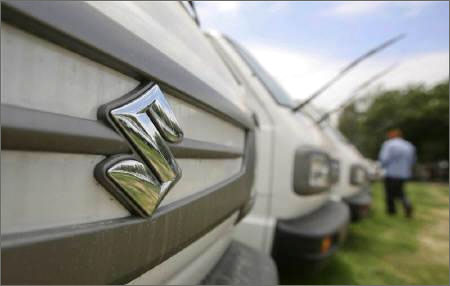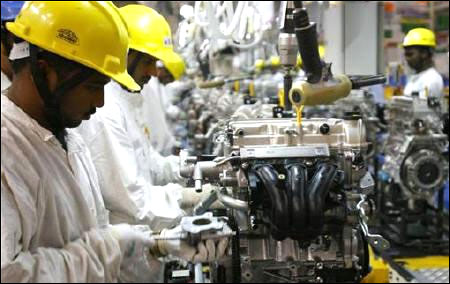
Hit by adverse foreign exchange fluctuations and higher input costs, the country's largest car maker Maruti Suzuki India Limited (MSIL) is looking at reducing its buying costs by three per cent every year to improve profit margins.
Cost benefits from cuts in buying costs will be at least Rs 800 crore (Rs 8 billion) this year, more than the Rs 653-crore (Rs 6.53 billion) decline in net profit the company saw in 2011-12. The company purchased materials valued at Rs 26,664 crore (Rs 266.64 billion) for the financial year ended March.
As part of this cost-cutting exercise, the company has initiated measures to step up localisation levels and to pare the number of tier-I suppliers over the next two-three years. Subir Maitri, managing executive officer (supply chain), MSIL, said, "We are trying to reduce our buying costs 3-3.5 per cent annually by cutting down component imports, improving yield and enhancing the usage of raw materials."
Click on NEXT for more...

The measures taken together are expected to show cost benefits over the next two-three years. The company is likely to save up to Rs 2,000 crore (Rs 20 billion) a year.
It is additionally consolidating its supplier base to increase sourcing from a smaller and more stable base of tier-I vendors to bring down logistics costs and to leverage economies of scale while inking sourcing pacts.
"We are scaling down the number of tier-I vendors. In 2003-04, we had 355 tier-I suppliers. We have reduced it to 250 as of now. This ensures better quality of components as the main suppliers we are sourcing from are mostly global companies who have better ability to make investments and build high-tech components.
There are some Japanese vendors such as Bell Sonica and Futaba supplying to Suzuki who have now set up base to supply exclusively to Maruti Suzuki. Besides, we have started sourcing from some European vendors who have now started manufacturing in India," said Maitri.
Click on NEXT for more...

As much as 35 per cent of the company's tier-I component suppliers are from Japan and Europe. While 35-40 per cent are Indian component manufacturers operating in association with foreign firms, the rest are purely home-grown vendors.
The company is encouraging tier-II and III suppliers to focus on specific components because of their inability to make large investments. In all, Maruti Suzuki has about 800 vendors, including tier-II and III suppliers.
To reduce exposure to forex fluctuations, the company has decided to cut direct and indirect imports of components by half over the next three years.
Maruti Suzuki sources 10 per cent of components directly from foreign markets, while another 15 per cent are imported by its vendors.
Click on NEXT for more...

In 2011-12, the company had to dole out Rs 280 crore (Rs 2.8 billion) as compensation on account of the rapid depreciation of the rupee against the Japanese yen.
"As as much 65 per cent of the components we import have exposure to the yen. We are sourcing more components from the Asean region, from countries such as Thailand rather than Japan to ward off currency risks and thereby reduce dependence on Japanese vendors," added Maitri.
Maruti Suzuki's annual yen exposure stands at Rs 8,000 crore (Rs 80 billion) and vendors' imports account for half. The company has commenced programmes to outline import reduction targets for vendors.